
Greedfall Review
If I was tasked to list out all of the little niggling shortcomings with Greedfall, I could probably end up filling a couple pages. Distractingly bad lip-sync, character models that feel a few years outdated, awkwardly reused building layouts, mismatched place and character names, spelling errors, and a lack of enemy variety, to start. However, while I feel an obligation to mention these smudges, I place them here upfront to match my experience with Spiders' colonial-inspired RPG. That is, once I had properly gauged my expectations and was able to sink my teeth into the gorgeously presented world, morally grey narrative beats, and a character-driven anthology of stories, I found that I simply didn't pay much mind to these faults at all.
I ended up enjoying Greedfall far more than I expected to, even after considering all of its many blemishes.
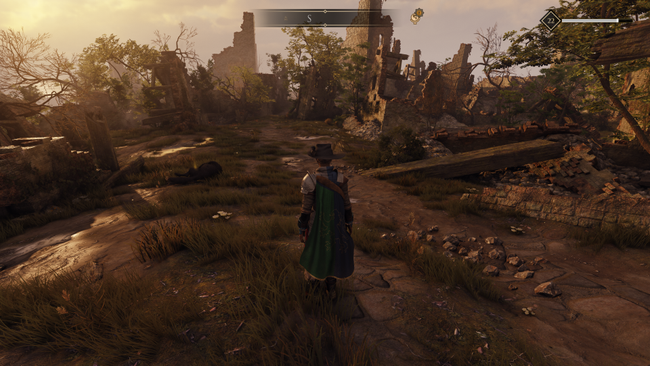
Greedfall places players in the role of Sir or Lady De Sardet, a Legate of a neutral faction known as the Congregation of Merchants. After being introduced to longtime friend Kurt, cousin and Prince-to-be Constantin, and saying goodbye to your ailing mother, the crew sets off for the recently discovered island of Teer Fradee (or Tir Fradi; Greedfall sometimes seemingly inconsistently goes with the French spelling, among other slight oddities). De Sardet's mother is dying to a disease known as the malichor, a plague-like malady that turns blood black and marks the infected with dark varicose veins and a sickly complexion. Teer Fradee is home to a native race of islanders who show no signs of this illness, and De Sardet's singular goal is to find a cure.
This framework is initially presented in a pretty understated manner relative to how vitally important it becomes with respect to setting up the narrative structure of the game. For more than 30 hours of my 40-hour playtime, there was no clear antagonist beyond this premise itself. There's no Corypheus, no Wild Hunt, no Archdemon threat. While the story does eventually approach this somewhat by the endgame, the conflict is instead carried by character and faction-driven stories, with the friction between the settlers and the natives at the center alongside the promise of a cure for malichor.
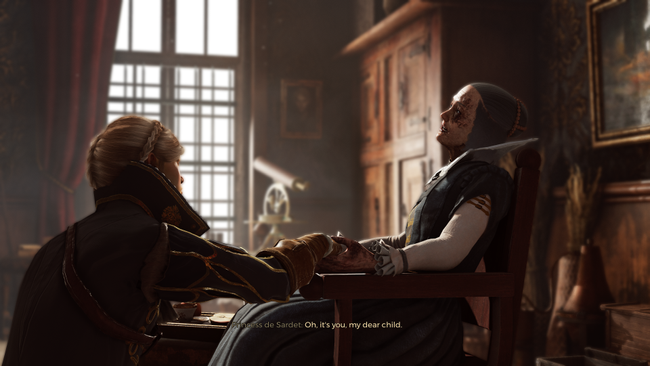
It's actually a refreshing change from the sorts of stories I've often come to expect from games like Dragon Age or The Witcher, which usually places a threatening obstacle in front of the player right away and immediately sets the ultimate destination for the narrative (with the exception of Dragon Age II, which might actually be the most appropriate comparison from the set). In lieu of that, conflicts are instead more oriented around personal discord and ideological differences between the various factions and their individual motivations.
Beyond De Sardet's Congregation of Merchants and the island Natives are four other factions vying for influence on Teer Fradee: the dogmatic nation of Theleme and their religious inquisition, the Bridge Alliance and their teams of naturalists and scientists, the Coin Guard mercenaries, and the sea-faring Nauts, which are probably the most inventive of the powers at play. Each faction also has a character that eventually finds their way into the player's party as a sort of 'representative' Companion -- it's a little bit artificial, convenient, and tidy, but it serves the framework of the game well, so it's not something I really minded.
Both Theleme and the Bridge Alliance are initially framed in a very villainous light. The violent inquisitor faction Ordo Luminous works underneath the banner of the Theleme church, while Bridge Alliance scientists will constantly refer to Natives as savages and not worthy of any role other than as research subjects. However, throughout the course of the game, every faction ends up at the other side of a combat encounter with the player, and more sympathetic characters within each are spotlighted within Greedfall's questlines. No faction is ever painted as a singular shade with a wholly unified set of beliefs.
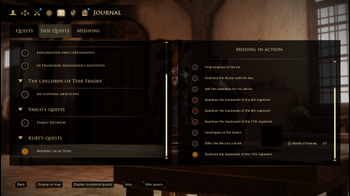
As you become more entrenched in the various strifes found within each colonial group, Greedfall will constantly update your Reputation score for each faction, along with a separate set of scores for your Companions as you undertake quests or converse with the faction's constituents.
Quests are designed in a pretty interesting way in Greedfall: each of the five factions has its own linear series of quests, and each companion does as well parallel to this. Sometimes progress is gated beyond progressing far enough in one of the main story quests (of which you're usually juggling multiple until near the very end), but for many of them, you can progress any in whichever order you choose.
It's important here to mention the Native faction in particular. The premise of Greedfall, along with its setting, have clear and obvious parallels with the colonial history of North America, which involved the displacement and eradication of thousands of Native Americans, not only due to colonial aggression but also from the spread of foreign diseases like smallpox, influenza, and measles. Greedfall's Native's immunity to malichor acting as a key part of the settlers' motivation for colonization of the island is a clever way to initially place the factions on a leveler playing field, but I also appreciated how the various storylines and quests managed to depict the Natives under several different sets of circumstances and beliefs.
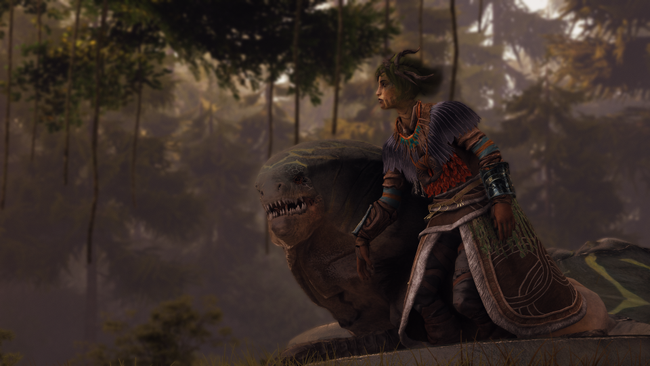
Unlike the other factions, there is no singular "Native Capital" with an analogous "Governor" at its head. Instead, there are 8 or so different Native clans on Teer Fradee, each with their own priorities and beliefs when it comes to how to respond to the new colonial presence. Some are secretive and simply desire to hide away, others are eager to interact with foreigners and engage in trade in the aim of self-interest. One key clan of Natives desires to eradicate all non-native presence on the island and violently force it out, while another feels similarly but instead thinks of the foreigners as something more like misbehaving children rather than an aggressive force.
Key characters representing these mindsets will often interact with not only the player, but each other -- and these conflicts are at the core of many of the Native-focused quests. Natives get the single largest plurality of quests and important NPCs, and while the sheer number is not important on its own, I think it does show the effort taken to not paint these groups as a single monolith of people to be placed under the same umbrella, despite all being under the "Native" faction tag. This is true of every faction, but it's by far the most prominently illustrated here. It may not be a perfect utilization of this type of setting, but I feel like my worst fears were assuaged, and the major possible pitfalls avoided.
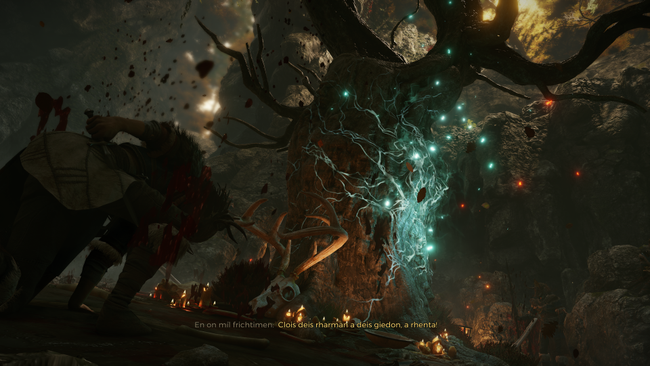
One specific thing about the Natives I was especially curious about is the presence of their spoken language. Natives will constantly pepper in foreign words in their dialogue, some will only speak in their own language to each other, and some minor characters won't speak in anything but their own tongue. Going in, I was mildly curious if the use of foreign words would come across as more for the enjoyment of the player, 'selling' the idea that these peoples are truly exotic, or hopefully more geared towards benefitting the setting itself.
Again, I feel like the ways the Native language is incorporated here is clever and fitting. Most of the indigenous words that the Natives use interspersed in normal conversation will be titles or roles that do not have good English equivalents and thus the native word remains the most appropriate. Oftentimes, full sentences of native dialogue are spoken without any translation available to the player, even when Siora, one of the Natives and also one of the player Companions, would theoretically be readily available to translate.
While important terms are occasionally explicitly translated as part of the story or framed in a way where the meaning becomes obvious, oftentimes I personally had to hear a handful of phrases multiple times before I understood and retained their meanings, as any foreigner on the island would likely be expected to. Some longer lines are never fully translated, so all the meaning must be gleaned from the context and apparent intent. In this way, I feel like the use of a new language was treated well and not subsequently trivialized via a Companion translator or some other mechanism.
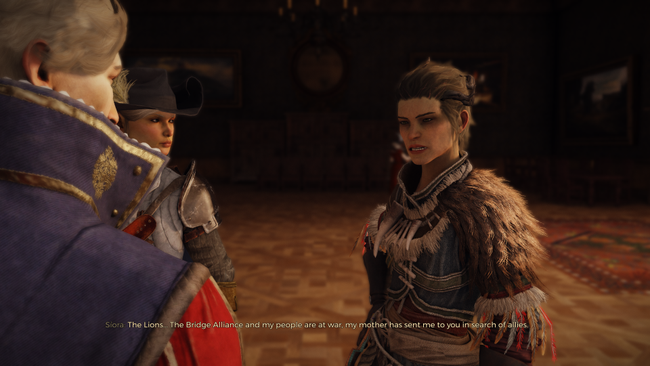
Siora is a fantastic character and one I ended up taking along for most of my playtime. All of the Companions in Greedfall do an excellent job of fleshing out the world, often interjecting their own opinions, additional comments, and even factoring into some of the RPG systems at play. Siora is, in my experience, the best example of this, largely due to the sheer focus that the Natives get as a component of every story, so she always has a stake -- even if you're currently interacting with another faction like the Nauts or the Alliance. Siora is not only eager to educate De Sardet about Teer Fradee and its people, but also pushes back when she feels lines are crossed, even to the potential point of no longer accompanying the player at all.
In general, the way the Companions interact within each quest is probably the single greatest highlight of Greedfall. In seemingly every single questline, your chosen party members will constantly chime in, pushing back against or going along with your decisions, oftentimes even extending dialogue with their own observations. It's also set up in a way that feels genuine -- by that I mean not every companion will have a new statement or opinion at a designated earmarked place in the script. Sometimes I would reload a save and learn that certain companions had nothing at all to say in the same place where another had three or more lines.
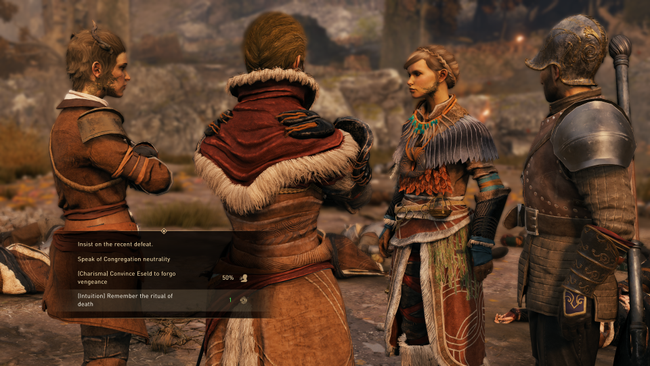
Not only that, but Companions will also have specific dialogue if a certain pair is present, speaking to each other in ways that almost had me double-checking if I even had the option to bring others along, almost in disbelief that a conversation I had heard might have actually been optional -- something that I heard purely based on my party choice. Companions will also play a role in the player's main dialogue choices in several notable ways. Companions that are friendly with the player will buff certain talents, others can be called on to bypass certain dialogue skill checks, and sometimes having a certain companion present will change the dialogue so that the check never appears in the first place.
One thing I do wish there was more of are personal dialogue trees directly between the player and the Companions. Beyond each Companion's bespoke questline and contributions to the story itself, they do not always have a lot to say if you speak to them while at camp, for instance. There are a few instances where you can reply to a question or offer some thoughts, usually after completing a stage of a Companion's personal questline, but the large part of player-to-companion interaction instead occurs within Greedfall's story scenes themselves. I still think it works very well, but I suppose I just wanted a little more even beyond that.
I was originally bummed out that you had to always bring two Companions with you, there's no option for a Lone Wolf mode or anything like that. But after learning the role that the Companions play in conveying the story of the game, I wouldn't suggest it even if it ever became an option. Companion romances are also on the table, with both Male and Female De Sardet's having straight and same-sex options for four of the available companions. It's not a hugely prominently featured aspect of the game, and only affects a pair of cutscenes near the end, but it's still a nice additional component to the game's character-focused storytelling, and it has a nice touch where it changes how a romanced Companion will address your player character.
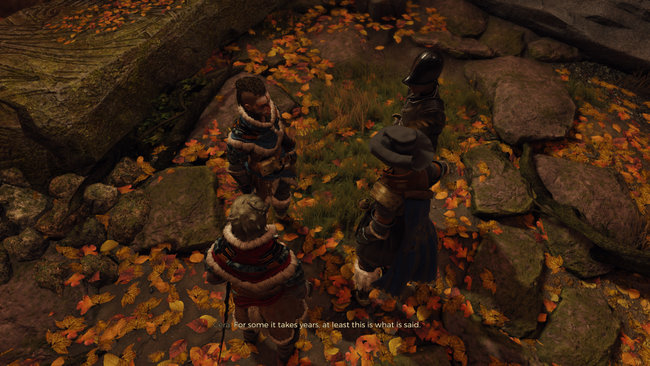
There's one specific example that I tested with some save-reloading that I think exemplifies the sort of story-variability that Greedfall is going for. One early-game quest involves the Bridge Alliance scientist Aphra who's seeking to rescue several Bridge researchers were being held captive by a rebel clan of Natives. It's initially framed as a simple sneak-or-fight scenario, only the game doesn't explicitly push you to go either direction. There's no failure "flag" for getting into a fight and no clear bonus for avoiding one and by the time the quest closes out of your log, it almost seems like the decision didn't matter. However, I learned that the decisions made here actually affect the subsequent quest in line, which the player isn't required to do back-to-back, so potentially occurring hours apart.
Players who violently engage the Native rebels will end up losing faction reputation at the start of the next quest, and will have to deal with an additional combat encounter with the Natives. Players who remained non-violent will instead see their character use this fact to avoid the confrontation in the first place. Adding yet another wrinkle to this binary choice is that having Siora along in the case of the first option will allow players to avoid the fight, even though the reputation is still lost. This is done automatically and not opted into by the player, so I was only keen to try swapping out party members when I recognized that Siora had talked down the rebels and understanding that her presence was optional in the first place. I'd probably still be making my way through the game if I wanted to exhaustively study all of the possible permutations at play.
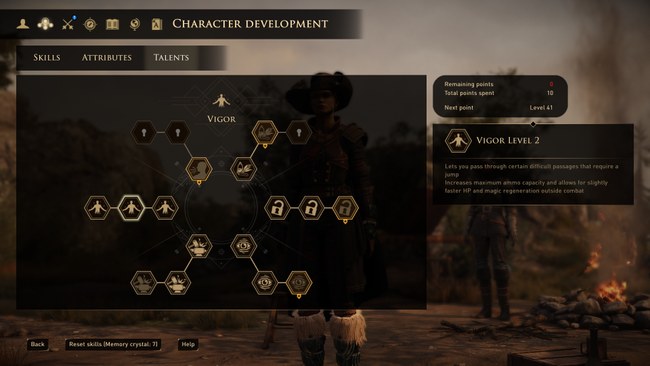
Dialogue choices and party setup are only two facets of the sorts of decisions that players will have to consider. There's also, of course, your playstyle itself. Key components of your character build in Greedfall includes Talents, along with Attributes, Skills, and equipment. Each level up and located skill shrine will reward Skill points, which can be used to unlock the ability to wield new weapon types or use new spells. Occasionally you'll earn Attribute points, which increase the rank of equipment you can wear. Very infrequently you'll earn Talent points, which are used to upgrade key abilities like Lockpicking or Charisma.
The final character component, Talent points, come at a premium. Talents only rank up 3 times in total, but there's a smart scale at play where each spent point truly feels like a consequential investment -- even at a high level you won't be able to simply cap out all the options. Since Companion characters on friendly standing with the player can give a passive buff to a specific talent, that interaction adds a tangible component to maintaining good reputation with your party members as well.
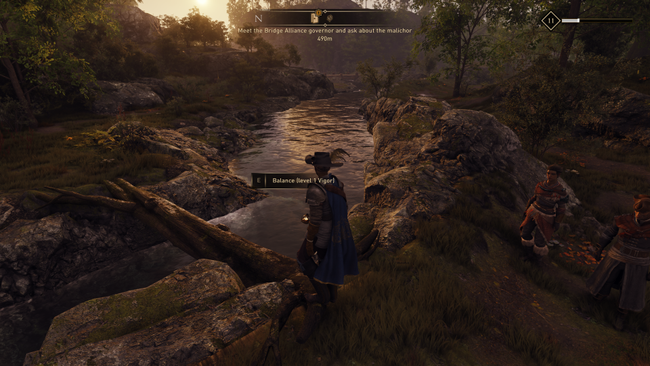
Talent points not only affect which dialogue options you can select via Charisma or Intuition, but also which doors you can pick open, which gaps you can jump with Vigor, or which gear upgrades you can craft. Upgrading gear via crafting not only provides statistical benefits, but is also cosmetic. Beyond this, some Skill point shrines or unique equipment are gated behind certain Vigor skill checks found on the field. The fact that all of the systems at play can tie together in these ways through Talents is one of Greedfall's greatest strengths.
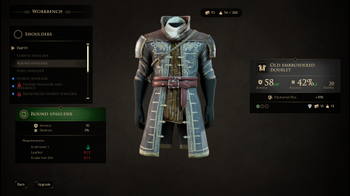
Unfortunely, combat itself is probably the core component of the game where I came away feeling the most lukewarm.
Greedfall uses a real-time action combat system which can be paused at any point to cast spells or use items. There's a lot to like about the systems at play here: being able to pause the game to scroll through to a potion of choice is a nice quality of life feature, as is being able to select from any unlocked ability even if it's not assigned to a shortcut. Animations are flashy and fluid, and companions actually make a notable impact on combat -- it never gets old to see Aphra knock down an enemy with a well-timed blunderbuss shot.
However, in general, I eventually found myself running from more fights than actively looking for them. Several monsters have high health bars and are a chore to fight, and many can be easily trivialized with lateral dodges. The spellcaster skill Lightning Dash is also an overpowered way to pretty much nullify any attack in the game. There are a couple of interesting checks and balances at play, such as spellcasters not being able to easily stun or knockdown late-game enemies, but instead, they are given ample access to abilities like Stasis, which can be spammed to a ludicrous degree.
I think that a couple of tweaks could be made to buff out some of the weird quirky shortcomings of the combat -- Lightning Dash should cost MP for instance, but the fact is that most enemies are melee types that do little more than bull-rush the player can be easily dealt with by simply playing from range and letting two melee companions kite and soak up the damage. Luckily, those that feel overpowered or that every fight is trivial can alleviate some of the tedium by changing the difficulty up at any time, but I ended up finding myself turning it down to Normal just to keep combat encounters simple and brief.
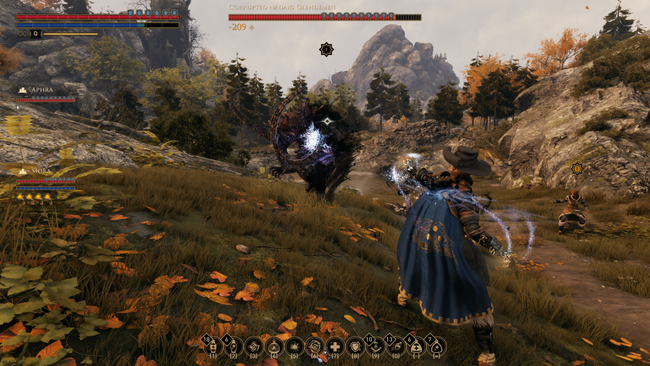
It would have also have been nice to be able to play as the Companion characters, even if only in combat. It would have been an interesting way to try out other playstyles without committing to the stat requirements. There are a handful of Memory Crystal items that will allow the player to reset all of their spent attribute points, but since Companions have to be individually geared out anyway, it would have been a neat way to see how another build archetype played without having to regear your own character. You can't select their stats, which is fine because it helps to nail down their archetypes, and there's still a bit of enjoyment to be had customizing their appearance as well, including craftsmanship upgrades.
While the combat itself doesn't elevate beyond serviceable, I found that it didn't really majorly detract from my enjoyment of the game, which was largely found within the games quest design and story-telling philosophy. While all of the narrative branches do funnel to a singular endpoint eventually, the way that the various companion relationships and faction stories coalesce to that point is done reasonably well, though I think I would have preferred it more if the possible conclusions ended up a bit more wildly divergent.
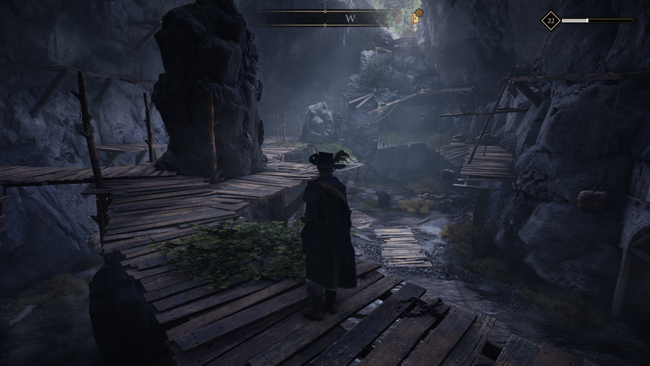
I don't know if it's appropriate to think of Greedfall as a sort of substitute, merely as a replacement for some other RPG. While it shares several of the same trimmings, I ended up finding an experience that was unique and stands on its own merits. I feel like it's an easy game to criticize for lots of reasons that I wouldn't disagree with -- but I was thoroughly impressed with the handling of the setting, the tone of the narrative, the character interactions and how those meshed with the underlying systems and mechanics, that I simply found myself uninterested in clinging on too strongly to a list of imperfections. Greedfall is an ambitious game that punches above its weight, one that RPG fan owe it to themselves to try.